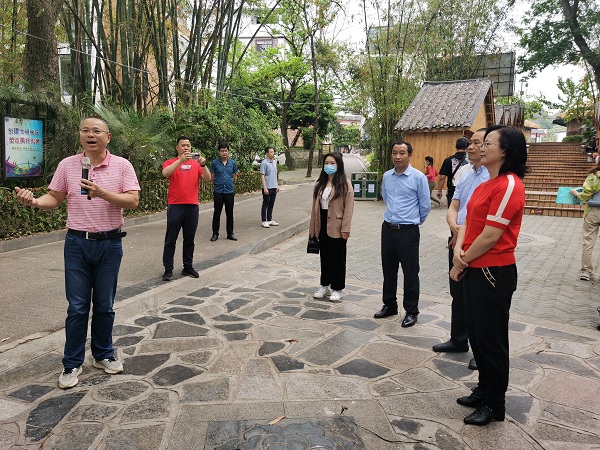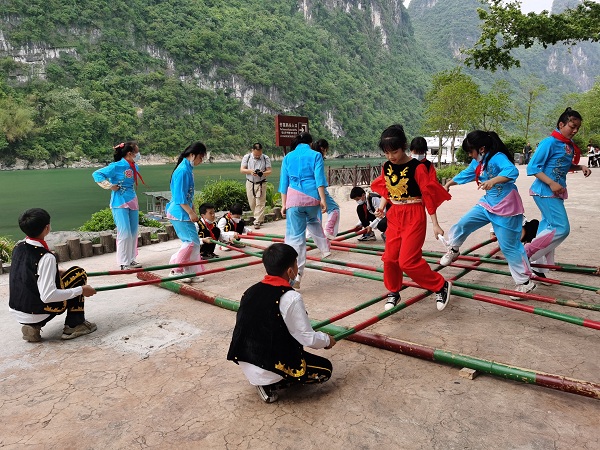Guilin village unites ethnic groups for rural revitalization
Caoping Hui ethnic village of Guilin's Yanshan district in Guangxi Zhuang autonomous region has achieved eye-catching performances in promoting unity among ethnic groups as part of its rural revitalization efforts.
Caoping village has a history of more than 300 years and is the only Hui ethnic village in the region. It boasts over 100 well-preserved historic buildings, mosques, and ancestral halls. It is currently home to 451 residents from 116 households from different ethnic groups and all of them have been lifted out of poverty.
A fund of nearly 400 million yuan ($63 million) has been invested in Caoping's infrastructure construction. As of now, the hardening rate of roads in the village has reached 100 percent and an additional green area of over 140,000 square meters has been built.

A village leader shows visitors around the beautiful Caoping village. [Photo provided to chinadaily.com.cn]
Zheng Daojuan, Party secretary of Caoping village's Qianjing township, said that Yanshan district has greatly invested to renovate the village's living environment. "The village became tidy and the living environment has been improved, which have helped attract more visitors to our village. Elements of traditional houses in north Guangxi, such as blue roofing tiles, white walls, and wooden windows, have greatly impressed visitors," added Zheng.
Rich local tourism resources have been integrated with Caoping's distinctive agriculture to realize the integrated development of the village's primary, secondary, and tertiary industries. Currently, Caoping has a plantation area spanning over 6,000 mu (400 hectare) where various kinds of fruit, such as persimmons, tangerines, and Chinese wampee fruit, are grown.

Children of Caoping Hope School perform a traditional ethnic group's dance. [Photo provided to chinadaily.com.cn]
Tang Guihui, principal of Caoping Hope School, noted that courses about Hui ethnic culture are available on campus and teachers from the Hui ethnic group are invited to give out two cultural lessons every week in the Hui ethnic language to enable children to learn more about ethnic group culture.














